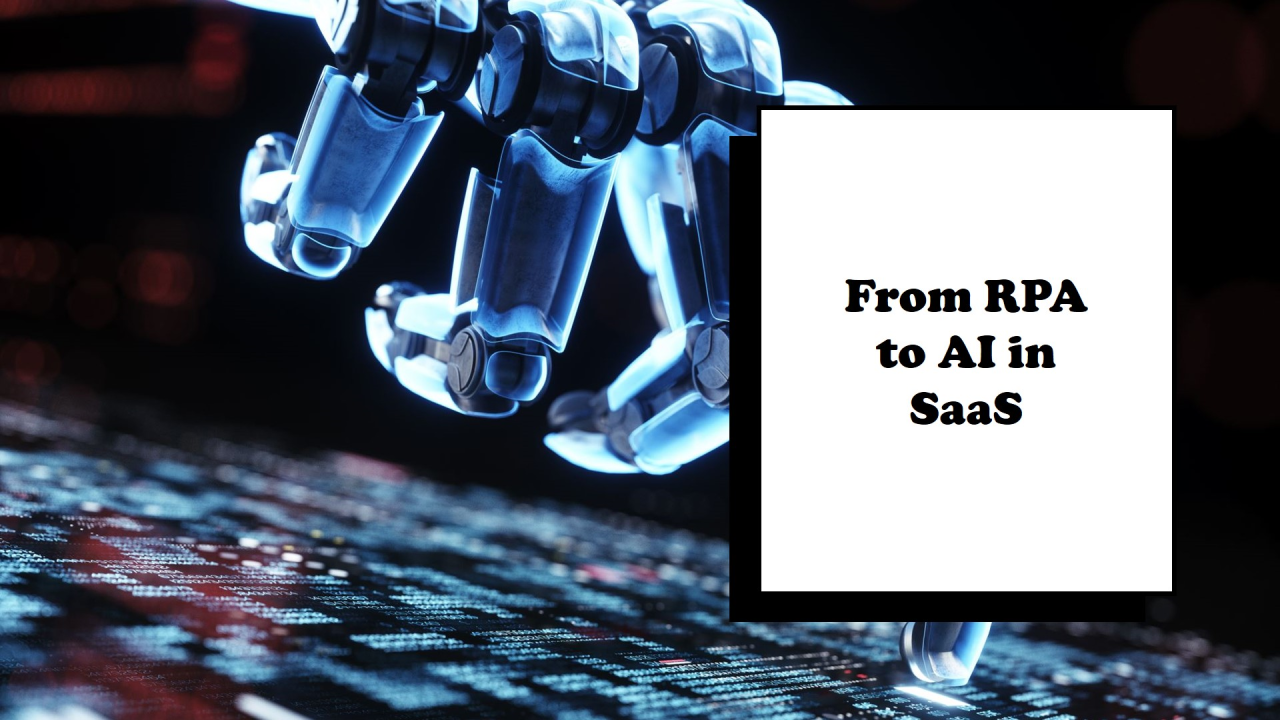Robotic Process Automation (RPA) has undoubtedly revolutionised the way businesses handle repetitive tasks. By mimicking human actions, RPA efficiently streamlines processes like data entry, invoice processing, and form completion. However, RPA’s capabilities are limited to predefined rules and workflows, rendering them ineffective in dynamic and unpredictable environments. This is where AI agents step in, bringing in a new era of intelligent automation in the SaaS landscape.
Agentic applications, powered by artificial intelligence (AI) and machine learning (ML), are autonomous agents that can sense, decide, and act independently to achieve defined goals. Unlike their RPA counterparts, AI agents are not confined to rigid scripts. They possess the ability to analyse data, understand context, and make informed decisions in real time – helping achieve a new level of efficiency that enterprises are already benefiting from.
The integration of AI in SaaS applications offers businesses a competitive edge in several ways:
- Improved Efficiency and Productivity: 34% of enterprises reported enhanced efficiency and productivity after implementing AI, as recently reported by Deloitte Consulting in their “State of Generative AI in the Enterprise” report. AI-powered SaaS solutions automate time-consuming tasks, allowing employees to focus on more strategic and complex initiatives.
- Enhanced Customer Engagement through Personalisation:AI algorithms analyse user data, including browsing habits, purchase history, and interaction patterns, to create personalised experiences – resulting in customised product recommendations, targeted messaging, and individualised marketing offers, ultimately improving customer satisfaction and loyalty.
- Advanced Marketing Ideation: AI-powered marketing tools analyse user behaviour, competitor actions, and market trends to generate data-driven insights for campaigns. This allows marketers to identify emerging patterns and predict successful strategies, leading to more innovative and effective campaigns.
- Next-Level Cybersecurity: AI in SaaS enhances cybersecurity by continuously monitoring systems for unusual activities and potential threats. ML algorithms identify patterns indicating a security breach, enabling real-time responses to prevent damage.
While fully autonomous AI agents capable of overseeing entire operations are still on the horizon, the current AI-powered SaaS solutions are already proving to be invaluable assets for businesses. Some notable examples include:
- Shopify utilises AI to guide new sellers through the platform, offering personalised tutorials and product suggestions based on their business type. The platform also leverages AI for dynamic pricing, allowing merchants to adjust prices based on demand and competitor pricing.
- Salesforce integrates AI-powered customer support through its Einstein Bots, which handle routine queries, while complex issues are escalated to human agents. Salesforce also employs AI to automate personalised marketing campaigns, optimising email and ad content, timing, and targeting.
- HubSpot employs AI to analyse customer interactions, predicting churn or conversion likelihood, which helps tailor marketing campaigns and improve customer retention strategies.
At Bhrish , we have a deep understanding of the SaaS landscape and expertise in enterprise-level deployments, and are uniquely positioned to help businesses navigate this transformative shift. Our experience in customising SaaS products to seamlessly integrate AI functions into existing systems, enables enterprises to harness the power of AI-driven automation.
It’s important to acknowledge that the journey towards fully autonomous AI agents is not without its challenges. Concerns surrounding accountability, risk management, bias in algorithms, data privacy, and regulatory compliance need to be addressed. However, the potential benefits of AI in SaaS are undeniable. As AI technology continues to evolve, businesses that embrace this transformation will undoubtedly unlock new levels of efficiency, scalability, and innovation.
